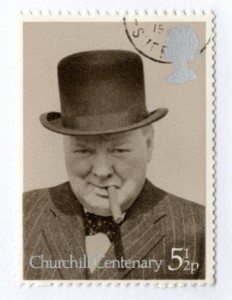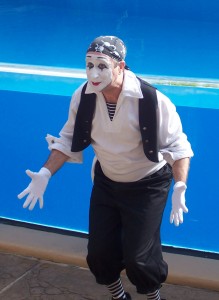After reading and appreciating Winston Churchill’s histories for years, I recently happened upon some online sites which list quote after quote of his most famous sayings. For instance, http://www.brainyquote.com/quotes/authors/w/winston_churchill.html
It got me thinking about the qualities that make for an eminently quotable personnage.
First, to be a truly quotable person, one must be well read. Now I realize that there are some exceptions to this, but, in general, we become masters at language (and, thus, worthy of being quoted) by reading other masters of language.
In case there might be some question, reading Cliff Notes, graphic books, or Reader’s Digest is not the same as reading books by the masters. It means reading the best, the notable, the classics, the stretching-our-vocabularies-and-minds type of books. (By the way, I would personally place the Bible at the forefront of the list of books worth reading. Immersing oneself in its words and thoughts—and yielding to its Truth—brings a clarity and grace to our lives and our words.)
A brief pause for Churchill: “It is a good thing for an uneducated man to read books of quotations.“
Second, to be a truly quotable person, one must think original thoughts. Having digested great books—considering and pondering them, arguing with and dissecting the authors’ writings—will break up a fallow mind, much like a plow through spring soil.
At this point, I must stop and ask how your child’s education is encouraging original thinking. Consider this startling concept: in standard curricula, whether in public school, private school or homeschool, the point seems to be to think INSIDE the box, coloring inside the lines, if you will. We all know this is excellent training for mindless, repetitive work in a fast-food shop or factory, but it certainly cramps one’s ability to become quotable.
“What do you think?”
“Uh. . . About, um, what?” Shuffle, shuffle.
“About the universe, or war, or God, or any of the BIG questions of life.”
“Uh. . .Well, um, I don’t know. I mean, is this a test or something?”
Sigh.
Churchill said, “However beautiful the strategy, you should occasionally look at the results.“
The third thing that makes for extremely good quotability is to do something. Do it well, whatever it is. Shakespeare, who is one of the most often quoted writers of all time (despite the fact that few today know that those cool quotes are from him) wrote well. . .and often. Churchill kept England toe-to-toe with one of the biggest bullies in history until Hitler was finally knocked out for the count. George Müller, whose quotes are among the most encouraging in Christian literature, ran five orphanages with over 2,000 orphans in Bristol, England—funded by prayer alone.
Churchill’s quotable thought: “To build may have to be the slow and laborious task of years. To destroy can be the thoughtless act of a single day.“
Fourth and last, recognize that it’s quirky people—fully given to their quirkiness—that are quoted. Average is boring. Quirky is interesting.
If this last point gives you shudders, let me quickly point out that we are all, every single one of us, as quirky as they come.
It’s part of the design. It’s part of the humor and part of the challenge of being unique.
As parents, let’s stop pushing our children into tightly controlled boxes where their quirkiness is squished to the bottom. Instead, smile at it. Enjoy it. Revel in the amazing way each one is uniquely designed.
And some day, we may find that our children have become notable. . .and quotable.
“For my part, I consider that it will be found much better by all parties to leave the past to history, especially as I propose to write that history myself.“ Winston Churchill—who went on to do exactly that.


